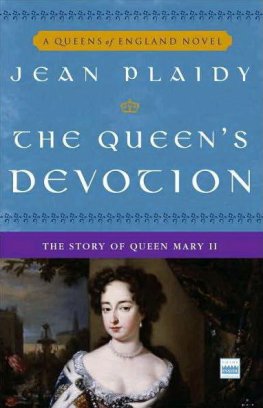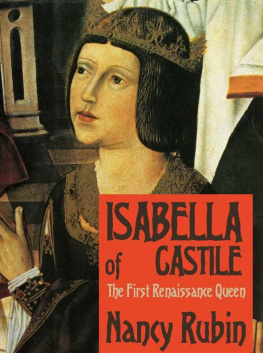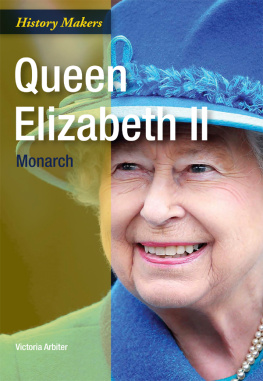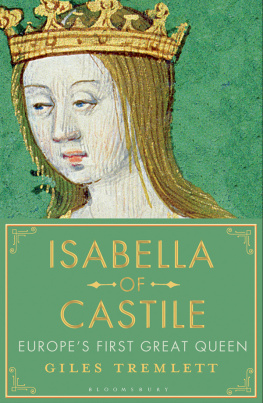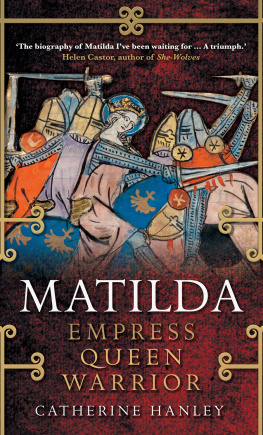Isabel the Queen

Isabel the Queen
Life and Times
REVISED EDITION
Peggy K. Liss

University of Pennsylvania Press
Philadelphia
THE MIDDLE AGES SERIES
Ruth Mazo Karras, Series Editor
Edward Peters, Founding Editor
A complete list of books in the series is available from the publisher.
Publication of this volume was assisted by a grant from the Program for Cultural Cooperation between Spains Ministry of Culture and United States Universities.
Originally published 1992 by Oxford University Press
Revised edition published 2004 by the University of Pennsylvania Press
Copyright 1992, 2004 Peggy K. Liss
All rights reserved
Printed in the United States of America on acid-free paper
10 9 8 7 6 5 4 3 2 1
Published by
University of Pennsylvania Press
Philadelphia, Pennsylvania 191044011
Library of Congress Cataloging-in-Publication Data
Liss, Peggy K.
Isabel the Queen: life and times / Peggy K. Liss.Rev. ed.
p. cm.(Middle Ages series)
Includes bibliographical references and index.
ISBN 0-8122-1897-3 (cloth: alk. paper)
1. Isabella I, Queen of Spain, 14511504. 2. SpainHistoryFerdinand and Isabella, 14791516. 3. QueensSpainBiography. I. Title. II. Series.
DP163.L48 2004
946.03092dc22
[B]
2004043084
Frontispiece: Master of the Magdalen Legend, Portrait of Isabel la Catlica, 1492. Prado, Madrid.
To Peter.
Some things never change.
Contents
Illustrations
Preface to the Revised Edition
Anniversaries, like family gatherings, have a way of exploding conventional truths. This book originally appeared in 1992, during the quincentenary of Christopher Columbuss arrival in America on a voyage commissioned by Isabel. By that years end, Columbus had been demoted from discoverer to invader, his future status in the history books under siege.
And now in 2004, what of Isabel, on this, the five hundredth anniversary of her death? I can only conclude that, whatever the fate of Columbus, Isabel stands firm; she is a major historical figure of the Western world. Her sponsoring of a voyage linking Europe and America and setting the initial nature of encounter remains one reason why. Another is that her stature has never been based solely upon a positive assessment of what she did and why she did it. Within Western history, she has no pedestal to crash down from.
Nonetheless, Isabel was a force, personally and politically: she threaded her way through conspiracies, faced down adversaries, triumphed in a civil conflict and then in a religious war. She gained the crown on her own terms, surrounded herself with able administrators, evoked awed respect from her subjects, and forged powerful alliances. She built a state and led her country into international preeminence and toward world empire. She was also fortunate in that she shared a remarkable lifelong love and working partnership with an equally strong king, Fernando of Aragn, whom she had married sight unseen and whose temperament and skills complemented hers. A reigning queen, she was the mother of notable queens, as well as of a unified Spain. That said, there remains the infamous Isabel who instituted the Spanish Inquisition and gave Jews and Muslims the choice of conversion or expulsion from their native land.
The original edition of this book pried apart the jointness of the dual reign of Fernando and Isabel and established the authority and something of the personality of Isabel. At the time, I was swimming against a tide of interest in social and regional Spanish history by choosing to take a new look at a political figure. Nonetheless, reconsidering a ruling queen provided new insight into social and cultural matters: for instance, shedding light on the importance of the royal roleIsabels rolein the Inquisition and in promoting or inhibiting violent outbreaks against Jews, as well as in orchestrating the lead-up to their expulsion. I also then sought to overturn two dismissive verdicts on Isabel, to establish that she was neither simply a woman of saintly piety nor a religious fanatic. In the doing, the range of imagery and symbols she employed to advertise herself and her program became apparent and highly important. Yet questions have lingered: Her ideology unpacked, how effective was it? How much of it did she herself take to heart? And how did an intrepid but obscure young princess become so formidable a monarch? This edition responds to those questions. It looks harder at Isabels character and her acute sense of what was expected of her as a Spanish ruler, as well as at her determination to meet the highest of those expectations. It more clearly charts the evolution of her personality, intellect, and goals in interaction with events. The revision and rearrangement of certain chapters, builds on what was initially presented as background information in discussing how importantly history and tradition figured in her thinking and self-representation. In this edition, too, my sources are much more fully documented.
Reflection has confirmed that Isabel was highly intelligent, courageous, and politically astute. Developed and underscored here is her demonstration of several outstanding traits: she was possessed of great moral conviction, she was ambitious, and she was literal minded. Isabel had a strong sense of reality, and her own reality included a huge legacy of myth interwoven with sacrosanct tradition and construed as divinely inspired history. Upon gaining the crown, she committed herself wholeheartedly to fulfilling the traditional aspirations of her nation and its greatest rulers as she understood them. Isabel believed fervently that Spains ruler was preeminent on Earth and divinely charged with leading an ongoing Spanish mission that in time was to culminate universal history, and that central to that mission was Christian advance against infidel and heretic. She was now that ruler. Moreover, she recognized that to reign successfully the monarch must be seen as imbued with virtues considered royal, the foremost of them being prudence, and she strove both to cultivate and personify those virtues.
This book tells how Isabel, displaying moral conviction and unflinching moral certitude, turning an imagined future into Spanish destiny, gained immense popularity. It looks at how she and her adherents widely disseminated her stance through chronicles, architecture, and iconography, drama, poems, and ballads, and songs and sermons. And it traces how what she stood for struck responsive chords in popular belief. Clearly, however disparate her policies, in carrying them out she translated aspirations commonly understood as Spanish ideals into anticipated reality; and her policies gained cohesion through each being presented as furthering the national mission. It shows how Isabel, both behaving as an absolute monarch and firmly believing in the propaganda she engendered, successfully presented centralizing innovation as continuity and reform as renovation. In the doing, she seamlessly linked religion and politics. So, for example, she rationalized the Inquisition and the expulsions of Jews and Muslims as the eradication of impurities or stains from the social fabric.
Next page

